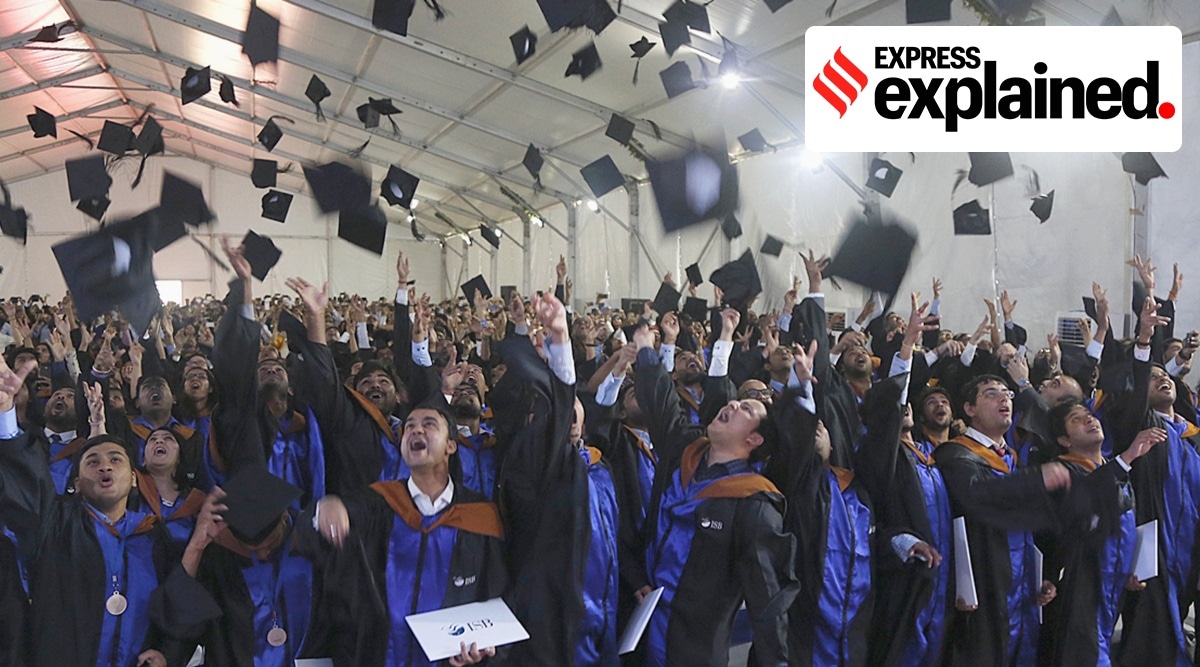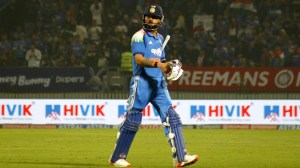Don’t need PhD to teach in a college: A look at UGC’s changed rule to hire entry-level professors
Why has the higher education regulator reversed a decision it made in 2018? Will this not affect the quality of faculty recruitment in higher education?
 Teachers acknowledge that removing the PhD requirement could help candidates from marginalised sections. But there are apprehensions over how the selection process will work in practice. (Express file photo by Jasbir Malhi)
Teachers acknowledge that removing the PhD requirement could help candidates from marginalised sections. But there are apprehensions over how the selection process will work in practice. (Express file photo by Jasbir Malhi) It is no longer mandatory to have a PhD degree to apply for the post of assistant professor in colleges and universities. It is enough to clear the National Eligibility Test (NET), State Eligibility Test (SET), or State Level Eligibility Test (SLET) to be eligible for appointment.
The University Grants Commission (UGC), India’s higher education regulator, notified this change on June 30, reversing a decision it made in 2018. The new minimum criteria for direct recruitment of college and university teachers at the entry level came into effect on July 1.
What was the system earlier?
In revised regulations on ‘Minimum Qualifications for Appointment of Teachers and Other Academic Staff in Universities and Colleges’ released in June 2010, the UGC said that candidates for assistant professor must qualify in the NET, SET, or SLET. However, candidates who had PhDs were exempted from this eligibility condition.
In other words, if a candidate had a doctoral degree, she could apply for appointment even if she had not cleared NET, SET, or SLET.
This changed in 2018, when Prakash Javadekar was Education Minister (known as the HRD Minister then). The UGC issued a notification in July 2018, which said, “The PhD Degree shall be a mandatory qualification for direct recruitment to the post of Assistant Professor in Universities with effect from 01.07.2021.”
What this meant was that candidates had a three-year window (2018-21) to complete their PhDs. UGC also directed universities and colleges to implement the new minimum criteria for recruitment from 2021.
In October 2021, taking note of the disruption caused by the Covid-19 pandemic, the UGC pushed the July 2021 deadline to July 2023.
Does this mean a PhD was never in effect a mandatory qualification for the assistant professor’s job?
In effect, no. UGC first set the date to implement the PhD requirement from July 2021, but this was extended to July 2023. However, even before this deadline could kick in, it has notified that a PhD is no longer mandatory.
Thus, UGC has reversed its 2018 decision even before it could be implemented.`
But why did UGC reverse the decision it had announced in 2018?
The purpose seems to be to cast the net wider by removing an inessential entry barrier, while ensuring at the same time that quality does not suffer.
UGC Chairman Mamidala Jagadesh Kumar told The Indian Express, “In certain disciplines such as policy-making, design, foreign languages, law, architecture and other similar subjects, universities often find it difficult to get candidates with a PhD. Removal of mandatory PhD conditions at the entry level will help universities in recruiting candidates with a flair for teaching but without a PhD. They of course need to complete their PhD to move to the next level [of associate professor].”
Jagadesh Kumar argued that this would not lead to a decline in the quality of education.
“We already have more than 25,000 PhDs produced every year in India. In major disciplines, there is intense competition to select the best PhDs for faculty positions. Therefore, removing PhD as a mandatory condition at the entry-level assistant professor position will not affect the quality of education.”
The UGC chairman clarified that while NET/SET/SLET is the minimum requirement for assistant professor, universities or colleges may set higher shortlisting criteria for interviews in order to manage the number of candidates.
“Since HEIs (higher education institutions) are autonomous, they can set a higher selection criteria in certain disciplines but use the UGC’s minimum criteria in other disciplines. For example, in a foreign languages centre, the university may use a Master’s degree and UGC-NET, if candidates with a PhD are not available. But in a chemistry department, the shortlisting committee may decide to shortlist only candidates with a PhD and, say, two journal publications. In the latter case, it will help to call only a manageable number of candidates to the interview,” he told The Indian Express.
How has the academic community reacted?
Teachers acknowledge that removing the PhD requirement could help candidates from marginalised sections. But there are apprehensions over how the selection process will work in practice — and whether candidates with research degrees might be overlooked for those with just a NET/SET/SLET.
Abha Dev Habib, an associate professor at Delhi University, said, “PhD is a longer research degree that requires a commitment of time and money. People coming from marginalised sections find it very difficult to prolong their studies, mainly women, Dalits, and Adivasi candidates. They can now appear for the position of assistant professor.”
Removing the PhD requirement allows people to enter the profession at a younger age. Abha Dev Habib acknowledged that it is difficult to find candidates with PhDs for many subjects and in many universities. For these universities, the revised criteria “is a big relief”, she said.
Jagadesh Kumar sought to allay fears that the selection process may be distorted in consequence of the new criteria. “There is no change in the selection criteria and there will be no change in the selection committee’s composition,” he said.
The selection committee comprises the Vice-Chancellor as chairperson, an academic appointed by the Visitor/ Chancellor, three experts in the subject nominated by the VC on the advice of the university’s statutory body, the Dean of the faculty and/or Head of Department, and an academic from among SC/ ST/ OBC/ Minority/ Women, nominated by the VC.
However, Apoorvanand, a professor at DU, told The Indian Express: “My fear is that many applicants who only have a Master’s degree in many subjects, from what I was told, are being appointed, while others who have taught as ad hoc [professors] or have a PhD have been disregarded.”
“Everything”, Apoorvanand said, “depends on the interview”, of which no record is kept. “How are you assessing the candidate based on the interview?”
(Ishita Roy is an intern with The Indian Express)
- 01
- 02
- 03
- 04
- 05






































